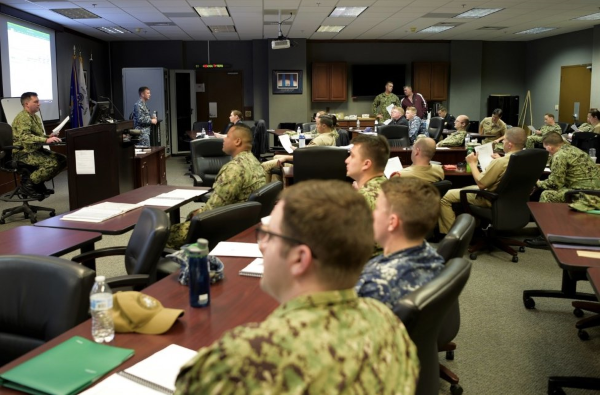A Navy Cryptologic Technician Interpretive (CTI) is simply a linguist for the Navy. These individuals use sophisticated electronic equipment to gather and interpret voice transmissions from foreign countries.
CTIs normally receive training in one of the following six languages:
- Arabic
- Chinese
- Korean
- Persian-Farsi
- Russian
- Spanish
The language a CTI studies depends on their aptitude and the Navy’s requirements. However, additional languages may be available to those CTIs who qualify.
Related Article – Air Force Airborne Cryptologic Linguist (1A8X1): Career Details

CTIs provide regional and cultural guidance in support of our nation’s security needs. They do this by collecting and analyzing foreign language communications of interest.
CTIs also transcribe, translate, and interpret foreign language materials for intelligence purposes.
A Cryptologic Technician Interpretive (CTI) normally works under the direction of a Cryptologic Warfare Officer or a Cyber Warfare Engineer along with their fellow sailors in Cryptologic Technician ratings:
- Cryptologic Technician Technical (CTT)
- Cryptologic Technician Networks (CTN)
- Cryptologic Technician Maintenance (CTM)
- Cryptologic Technician Collection (CTR)
Related Article – Navy Jobs List: A List Of All 71 Ratings In The Navy
Jump To A Section
Requirements and Qualifications
To serve as a Cryptologic Technician Interpretive (CTI) in the United States Navy, you must meet these requirements:
- US citizenship
- Your immediate family members must be US Citizens or citizens of countries listed in ICD-704 as low-risk countries.
- You must have no adversely adjudicated drug abuse offenses.
- Must be between the ages of 18 and 41.
- You must have normal hearing.
- High school diploma or equivalent.
- Must be worldwide assignable.
- You must volunteer for duty involving aerial flight and duty onboard submarines.
- Must be eligible for a Top Secret / Sensitive Compartmented Information (TS/SCI) clearance based on a Single Scope Background Investigation (SSBI).
- Must have an Armed Forces Vocational Aptitude Battery (ASVAB) score of VE (Verbal Expression) + MK (Mathematics Knowledge) + GS (General Science) = 162.
- Must have a Defense Language Aptitude Battery (DLAB) score of 110.
- Former Peace Corps members are not eligible.
Related Article: Navy Height And Weight Standards
Training and Career Path
Like all other sailors, CTIs must successfully complete 10 weeks of Navy Recruit Training, at the Recruit Training Command, Great Lakes (RTC Great Lakes).
Training for a Cryptologic Technician Interpretive (CTI) takes place in two phases:
- Class “A” School Phase I
- Phase II Class “F” School
Navy A School Phase I is anywhere from 27-64 weeks long depending on the language the CTI is assigned (Spanish is 9 months long, Persian-Farsi, Russian, and Hebrew are 12 months long, and Arabic, Chinese Mandarin, and Korean are 18 months long).
Training is conducted at the Defense Language Institute (DLI) in Monterey, California.
Phase I training teaches the CTI the comprehensive fundamentals of the language they have been assigned.
Credits are awarded that the sailor may apply towards earning their Associate’s Degree from the Defense Language Institute (DLI).

Related Article – USMC Cryptologic Linguist (MOS 2671-2676): 2020 Career Details
After graduation from “A” school, a Cryptologic Technician Interpretive reports for training at a Center of Excellence based on their assigned language in either Georgia, Hawaii, Maryland, or Texas. They are also automatically advanced to E-4
This is the CTIs Phase II Class “F” School. Again, school length varies depending on the language the CTI is assigned. Training can be anywhere from 6 to 12 weeks in length.
Here, the CTI learns the technical application of the language that they learned in “A” school.
After successful completion of their training, CTIs are often assigned to the Center of Excellence location where they attended “F” school.
What’s Life Like for a Navy Cryptologic Technician Interpretive (CTI)?
A Cryptologic Technician Interpretive specializes in the analysis of radiotelephone communications and adversary developments.
Related Article – Army Psychological Operations Specialist (MOS 37F): Career Details
Additionally, CTIs prepare technical reports and statistical studies utilizing their knowledge of a foreign language for review and analysis at a command level.
On a day-to-day basis, the Cryptologic Technician Interpretive has a variety of duties, including:
- Operating computer-assisted information systems
- Working with classified material.
- Deploying on naval aircraft and naval subsurface and surface vessels.
- Operating electronic recording devices, radio receivers, and computer terminals related to the communications signals arena.
- Analyzing and reporting on technical information of tactical and strategic importance to national intelligence agencies and fleet commanders.
- Transcribing and translating foreign-language communications data.
While ashore, CTIs normally work in technical lab-like office environments.
Related Article – Army Human Intelligence Collector (MOS 35M): Career Details
Sea duty for the CTI is defined as the performance of their job on any subsurface vessel, aircraft of submarine.
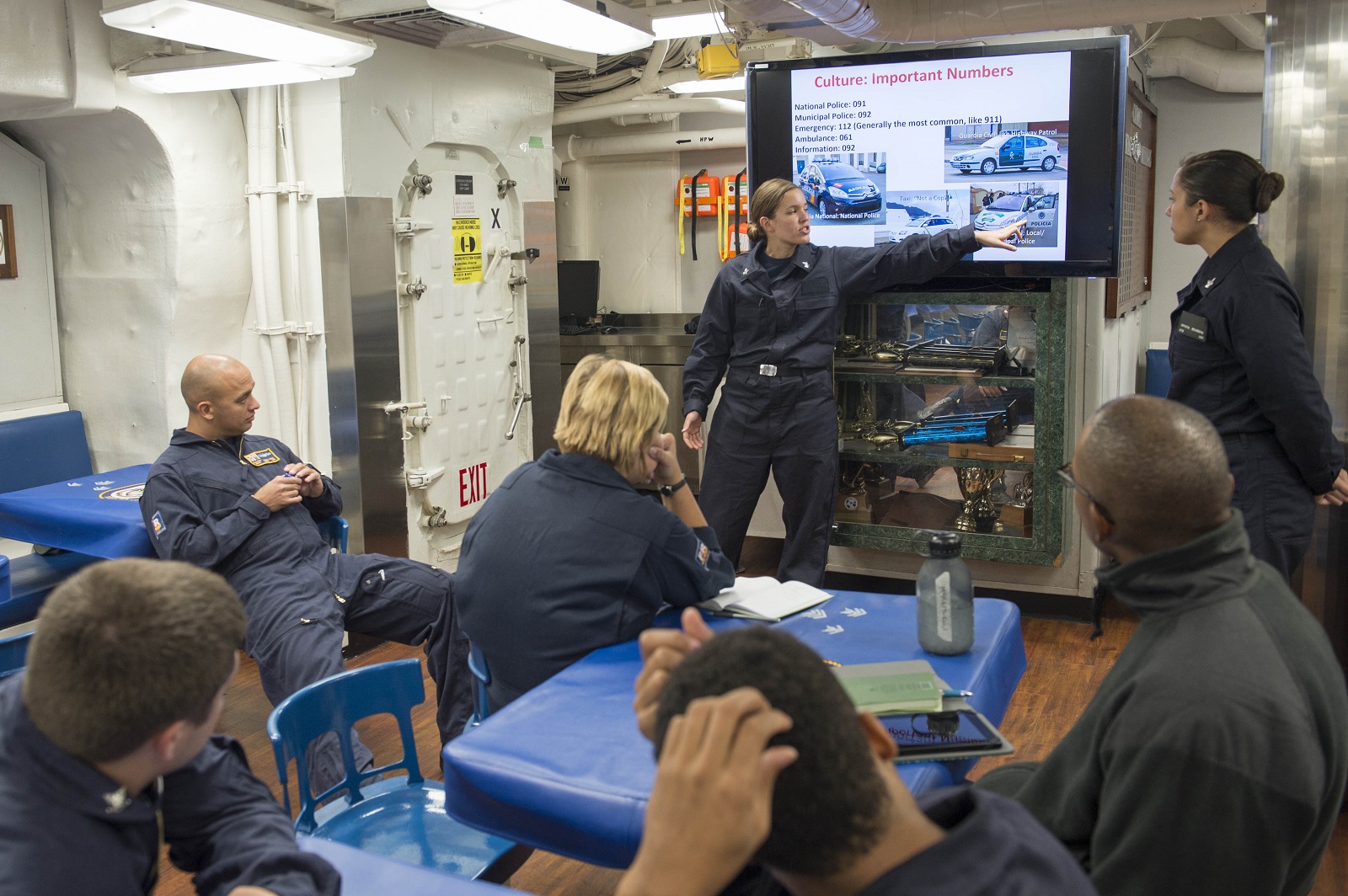
The data they glean is of utmost importance and interest at the command and decision-making level.
On the social news website Reddit, a newly-enlisted CTI inquired in the subreddit, r/newtothenavy as to what life as a CTI is like.
A 10-year CTI veteran answered him:
“I’ve been a CTI for about ten years now. I’ve deployed on subs which absolutely did mean spending 12 hours in a dark room either translating or listening to white noise. That’s also the job that got me to see Japan, Singapore, Philippines, etc.”
“I’ve also spent years as essentially a CTR composing reports, living a life barely different than a civilian. I’ve had a couple other jobs where language was useful but my primary duty was to be a subject matter expert on my region.”
“CTIs on the watch floor do spend a ton of time just translating, but there’s room to move up to more supervisory roles for those that want to.”
“I’ve also seen some go straight into being pseudo-CTNs, usually if they have a lot of network and coding experience.”
CTIs are required to prove their language proficiency yearly by taking the Defense Language Proficiency Test (DLPT).
Navy Cryptologic Technician Interpretive (CTI) Sea/Shore Rotation
Cryptologic Technician Interpretive is one of the few rates in the US Navy that does not have a Sea/Shore Rotation. CTIs are normally assigned to a Center of Excellence in Texas, Hawaii, Maryland, or Georgia.
They are, however, frequently deployed for temporary duty with Navy Special Operations, or a variety of air, surface, and subsurface platforms.
How Much Are Cryptologic Technician Interpretive (CTI) Paid?
Like the other Armed Services, the Navy bases a sailor’s pay on their rank and length of service.
| Insignia | Pay Grade | Rank | Abbreviation | 2023 Minimum Monthly Pay |
|---|---|---|---|---|
| N/A | E-1 +4 months | Seaman Recruit | SR | $1,917.60 |
| E-2 | Seaman Apprentice | SA | $2,149.20 | |
| E-3 | Seaman | SN | $2,259.90 | |
| E-4 | Petty Officer Third Class | PO3 | $2,503.50 | |
| E-5 | Petty Officer Second Class | PO2 | $2,730.30 | |
| E-6 | Petty Officer First Class | PO1 | $2,980.50 | |
| E-7 | Chief Petty Officer | CPO | $3,445.80 | |
| E-8 | Senior Chief Petty Officer | SCPO | $4,957.20 | |
| E-9 | Master Chief Petty Officer | MCPO | $6,055.50 | |
| E-9 | Command Master Chief Petty Officer | CMDCM | $6,055.50 | |
| E-9 | Master Chief Petty Officer Of The Navy | MCPON | $6,055.50 |
Like all sailors, CTIs may receive additional pay, including a Basic Allowance for Housing (BAH) and a Basic Allowance for Subsistence (BAS). Combined, these allowances can represent several thousands of dollars in non-taxable income per month. The amount will depend on rank, family status, and assignment locations.
And unlike other Navy ratings, sailors in the Cryptologic Technician Interpretive rating receive a Foreign Langauge Proficiency Bonus for maintaining their proficiency, which can be upwards of $1,000 monthly depending on the number of languages they are proficient in, as well as their proficiency level.
In addition, CTIs are eligible for a $15,000 Enlistment Bonus after successful completion of Phase I and Phase II training. The Navy is also offering up to $75,000 for qualified CTIs to reenlist.
Related Article – Army Interpreter (MOS 09L): Career Details
Job Reviews
Reviews from current and former CTIs on indeed.com vary, but the vast majority are positive:
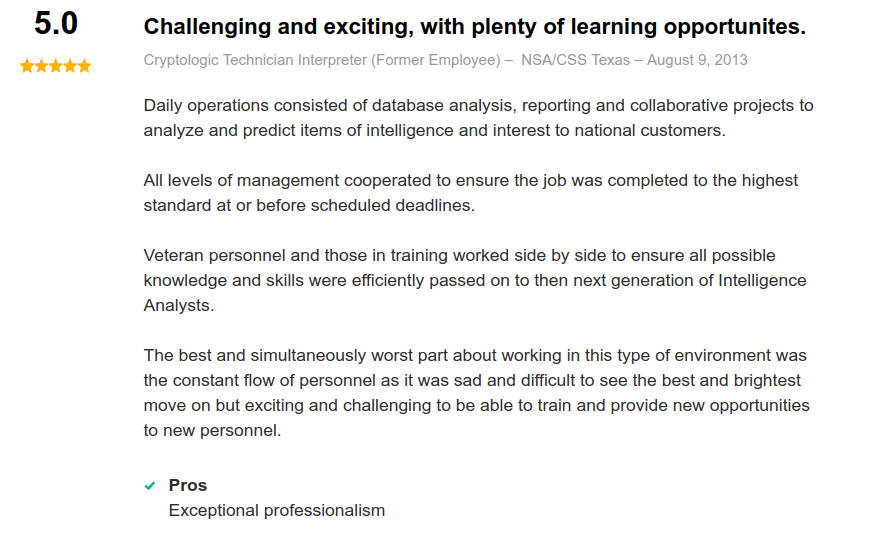
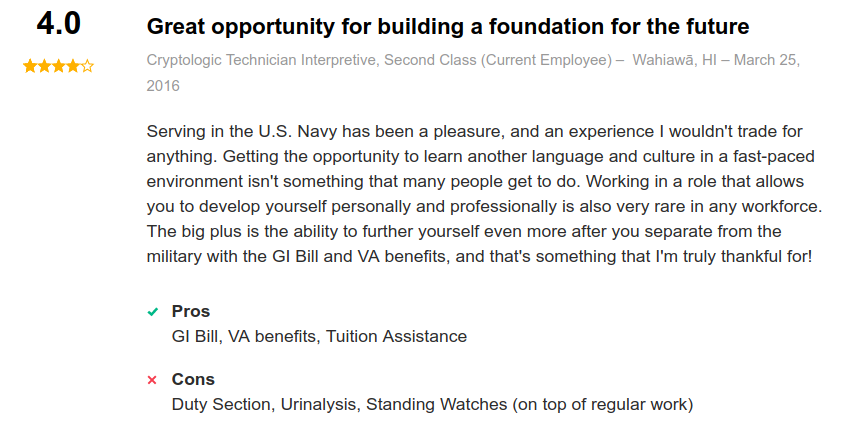

 More than 2,100 sailors serve in the Cryptologic Technician Interpretive rating in today’s Navy.
More than 2,100 sailors serve in the Cryptologic Technician Interpretive rating in today’s Navy.
Related Article: 10 Best Jobs In The Navy For Civilian Life
Civilian Career Opportunities
Civilian career opportunities for former CTIs are plentiful and include such jobs as:
- Interpreter and Translator
- Radio Operator
- Immigration and Customs Inspector
- Audio/Video Equipment Technician
- Foreign Language Teacher
In addition, CTIs should take advantage of their TS/SCI security clearance to use their skills in the National Defense/Intelligence community.
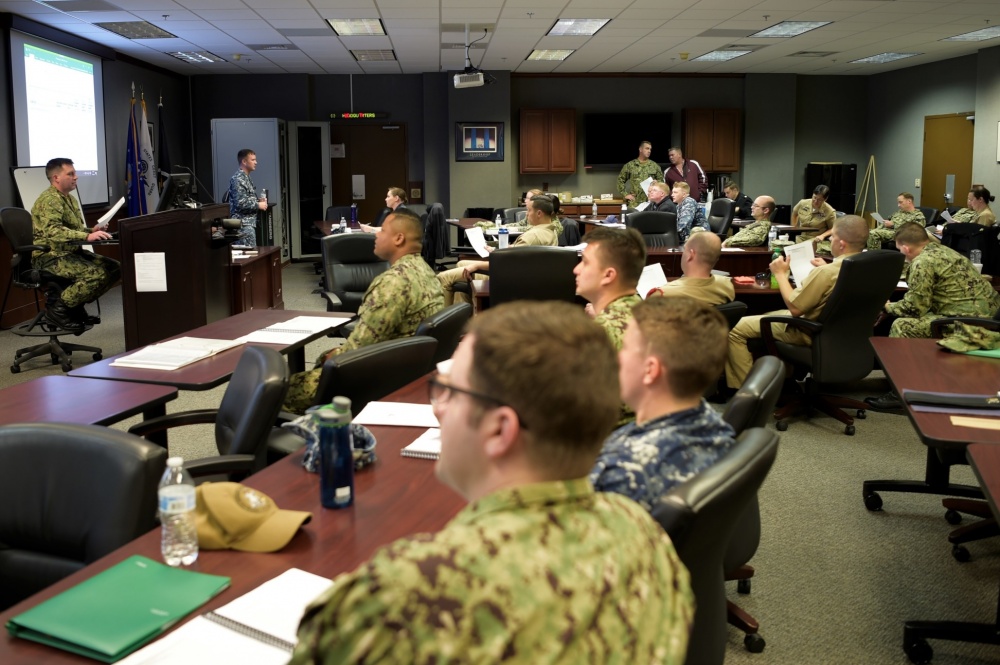
Sailors in the Cryptologic Technician Interpretive rating are encouraged to take full advantage of on-the-job training (OJT) opportunities, and educational opportunities offered and afforded to them during their naval service.
The Navy also strongly encourages CTIs to obtain a Defense Language Institute (DLI) Associate of Arts Degree in their target language while serving.
The United States Military Apprenticeship Program (USMAP) also allows CTIs to complete several of their civilian apprenticeship requirements while on active duty.
Several national certifications, federal licenses, and state licenses are obtainable by sailors in the Cryptologic Technician Interpretive rating.
Related Article – Rosetta Stone Military Discount
Summary
If you are considering the US Navy, possess the ability to learn a foreign language, have above-average speaking and writing skills, have a good memory, and have an interest in technology, give some consideration to the Cryptologic Technician Interactive (CTI) rating.
References
Official Navy Cryptologic Technician Careers Description
Navy Personnel Command Cryptologic Technician – Interpretive (CTI) Overview
Navy Personnel Command Cryptologic Technician – Interpretive (CTI) Overview – Addendum
U.S. Navy COOL Summary For Cryptologic Technician Interpretive (CTI)
Navy COOL Cryptologic Technician Interpretive (CTI) Rating Card
Navy Cryptologic Technician Interpretive (CTI) Reviews
- Gas Turbine Systems Technician (GSM and GSE): Career Details - June 18, 2024
- Interior Communications Electrician (IC): 2023 Career Details - June 18, 2024
- Religious Program Specialist (RP): 2023 Career Details - June 18, 2024
General FAQ
What is a Cryptologic Technician Interpretive in the Navy?
A Navy Cryptologic Technician Interpretive (CTI) is the Navy’s position for linguists, trained in a second or third language in order to interpret intelligence information.
How much does a cryptologic technician make in the Navy?
Navy personnel are paid based on their rank and time in service. However, CTIs receive a Proficiency Bonus for each language they qualified for, up to $1,000 a month. They also receive generous reenlistment bonuses.
How long is Navy CTI A school?
Like all language training for the Armed Forces, Cryptologic Technician Interpretives attend the Defense Language Institute in Monterey, California. The length of training depends on the complexity of the language, from 9 to 18 months long.
How do I study for the DLAB?
The Defense Language Aptitude Battery tests your aptitude to learn a new language and recognize patterns in speech and writing. However, if you have an aptitude for English or another language, it will probably translate well.
What percentage of people pass the DLAB?
The DLAB measures aptitude and getting a low score will prevent you from qualifying for a military linguist job. Only potentially qualifying personnel take the taste, but even with pre-screening, about 50 percent fail to qualify.
Originally posted on August 21, 2019 @ 1:42 am
Affiliate Disclosure: This post may contain affiliate links. If you click and purchase, I may receive a small commission at no extra cost to you. I only recommend products I have personally vetted. Learn more.
